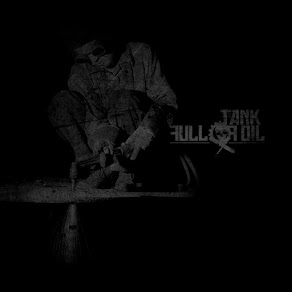Sub Pop [Special]
Sub Pop [Special]The Seattle independent record label begins life in 1979 as a fanzine written by former Illinois resident Bruce Pavitt, in which he extols his favorite underground bands while attending Evergreen State College in Olympia, Wash. Pavitt later moves to Seattle and begins putting out compilations of Pacific Northwest punk bands. In 1987, he joins forces with a local concert promoter, rock deejay and musician, Jonathan Poneman, to finance and release the debut EP, “Screaming Life,” by the Seattle metal band Soundgarden. The next year the two quit their day jobs and move into an office in downtown Seattle to launch the Sub Pop label in earnest.
Mudhoney’s “Superfuzz Bigmuff” EP is released in 1988, and becomes the template for the so-called Seattle sound: “grunge,” a derivation of the slang term “grungy,” as in “filthy” or “nasty.” Pavitt and Poneman embrace grunge as a marketing concept, a tongue-in-cheek description of the guitar-driven, feedback-encrusted, no-frills recordings of Pacific Northwest bands devoted to Stooges-style punk, with a dash of early Black Sabbath metal. Pavitt and Poneman scheme to turn their little indie label into a mainstream success by adopting major-label marketing ideas and giving them a sarcastic twist. They enlist British weekly Melody Maker to send a journalist, Everett True, to the Pacific Northwest to document the scene. True’s laudatory two-part profile puts the label on the map in Europe, and soon after Sub Pop becomes synonymous with cutting-edge rock --- even though its bands essentially revive strands of underground music that had been around for decades.
Nirvana’s 1989 debut, “Bleach,” ends up becoming the label’s biggest-seller. The trio is signed to a major, Geffen, and its 1991 album, “Nevermind,” sells millions. Seattle becomes ground central for the alternative-rock era. Cameron Crowe’s 1992 romantic comedy, “Singles,” is set in Seattle, and the soundtrack amps up the hype even more. “Nevermind” sales help keep Sub Pop afloat (through a licensing deal with Geffen), but Sub Pop bands such as Soundgarden, Mudhoney, Afghan Whigs and even the obstreperous Tad are signed to major-label deals in the wake of the media feeding frenzy.
Cobain kills himself in 1994, and the grunge era fizzles. Sub Pop’s up-and-down financial fortunes stabilize when it aligns itself with Warner Bros. Records, which acquires a 49 percent stake in the label. Pavitt departs a year later, leaving Poneman in charge. Still, the label releases key albums by Sunny Day Real Estate, which defines ultra-earnest “emo” punk, and Combustible Edison, which reinvents cocktail-lounge music for a new generation of swingers.
The recent rise of the Shins, the Postal Service, Iron and Wine, Wolf Parade, Fleet Foxes and comedy duo Flight of the Conchords reaffirms Sub Pop’s reputation as a magnet for fresh sounds, and gives it unprecedented financial success. Eight of the 10 best-selling albums in the label’s history have been released in the last seven years.
1. Sub Pop - Sub Pop 5 (cassette)
2. Sub Pop - Sub Pop 7 (cassette)
3. Sub Pop - Sub Pop 100
4. Sub Pop - Sub Pop 200
5. Sub Pop - Fuck Me I'm Rich
7. Sub Pop - The Grunge Years
PASS: discosgrunge.blogspot.com









Post a Comment